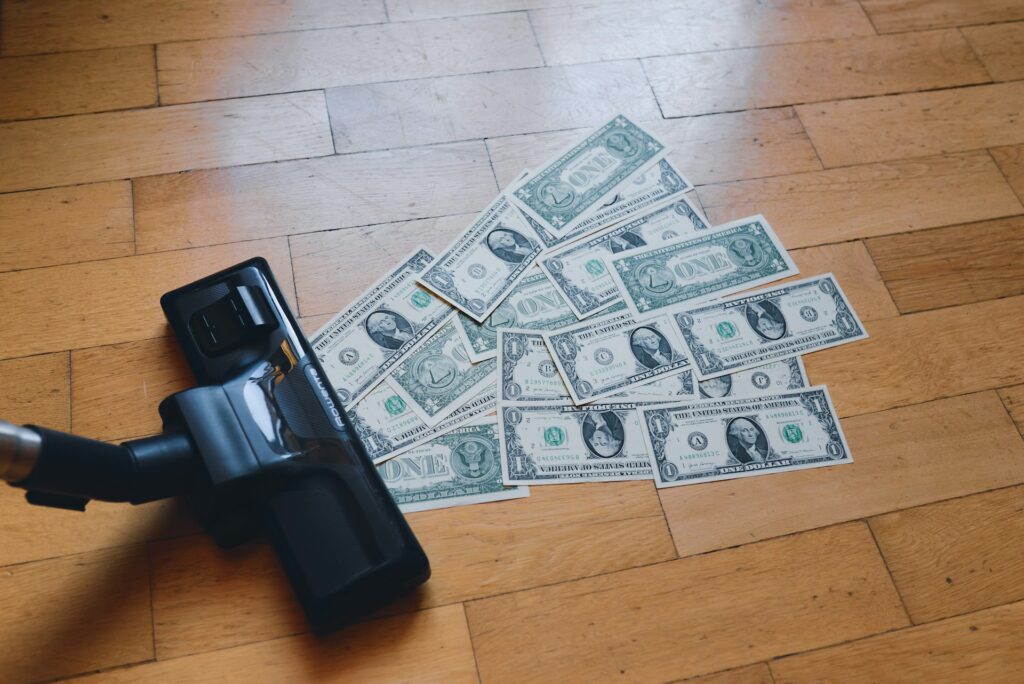Spending money is part of daily life, but overspending can slowly creep into your routine without you noticing. It often hides behind habits that feel normal, yet they quietly drain your finances and increase financial stress. Recognizing the warning signs of overspending early gives you the chance to make better decisions and create a healthier relationship with money.
You Regularly Rely on Credit Cards

Credit cards make paying for things easy, but depending on them too often is a warning sign. When you carry balances into the next month, interest charges start piling up and make purchases cost far more than their original price. Over time, this form of excessive spending eats away at your budget and limits your ability to save. A healthier approach is to track what you spend with credit, pay the balance in full whenever possible, and use cash or debit for daily expenses to stay in control.
You Struggle to Save Consistently

Saving money should feel achievable, even if you only put away a small amount each month. If you earn enough but cannot build savings, it may be because spending beyond your means is leaving nothing behind. Financial strain often comes from focusing more on wants than needs, which makes saving seem out of reach. To fix this, set a clear goal, automate your savings, and view it as a non-negotiable part of your budget. Even small amounts will grow over time and help protect you from careless spending habits.
You Shop to Relieve Stress or Boredom

Shopping for comfort can feel like a quick fix, but emotional spending rarely solves the real problem. Buying new clothes, gadgets, or treats may lift your mood for a short while, but the satisfaction quickly fades. What remains is clutter and less money in your account. Overspending often grows from these unplanned purchases, especially when they become a regular habit. Instead, try healthier alternatives such as exercising, journaling, or calling a friend when boredom or stress hits. These options cost nothing and give longer-lasting relief without draining your budget.
You Ignore or Underestimate Small Expenses

Small daily expenses like coffee, snacks, or streaming services can feel harmless, yet they often add up to a surprisingly high total. People often dismiss these costs because they seem minor, but when combined, they can equal hundreds of dollars each year. This type of careless spending quietly erodes your financial health. By tracking these minor purchases for even a month, you can see where money slips away and identify easy areas to cut back. Choosing to limit these costs does not mean depriving yourself, but rather becoming more mindful about how you spend.
You Frequently Dip Into Savings

Your savings should act as a safety net, not a regular source of extra cash. If you often move money from savings to cover bills or daily spending, it shows your lifestyle is exceeding your income. This pattern makes it difficult to prepare for emergencies or future goals and leaves you vulnerable when unexpected costs arise. Overspending often pushes people into this cycle without them realizing it. By adjusting your spending to match your actual income and separating savings into a separate account, you create a barrier that helps protect your future.
You Rarely Know Where Your Money Goes

If your paycheck disappears and you cannot explain why, you may be overspending on unplanned items. This lack of awareness often comes from not tracking expenses or budgeting. Without a clear view, money easily flows toward impulse buys, subscriptions, or unneeded luxuries. Over time, this weakens your ability to reach financial goals. Creating a simple budget, using a spending app, or reviewing your bank statements regularly can reveal hidden spending patterns. Once you see where your money is going, you can make small changes that prevent unnecessary financial strain.
You Live Paycheck to Paycheck Despite Adequate Income

Many people feel broke even though they earn enough to cover basic needs. This often happens because of lifestyle creep, a situation where spending increases every time income rises. Overspending hides in this pattern, leaving little money left over for savings or emergencies. Although your salary may be sufficient, living paycheck to paycheck signals that too much is going toward non-essential purchases. To avoid this trap, keep your expenses steady even when your income grows, and direct the extra money into savings or investments. This creates financial security and long-term freedom.
Conclusion

Overspending often hides in daily choices that feel normal at first. However, it slowly creates financial stress and prevents you from building stability. By noticing the signs, such as relying on credit cards or dipping into savings, you can take control before the problem grows. Practical steps like budgeting, saving consistently, and cutting small unnecessary costs make a powerful difference. In the end, being aware of your habits today helps you avoid excessive spending and build a secure financial future.
Disclaimer: This article was created with AI assistance and edited by a human for accuracy and clarity.

